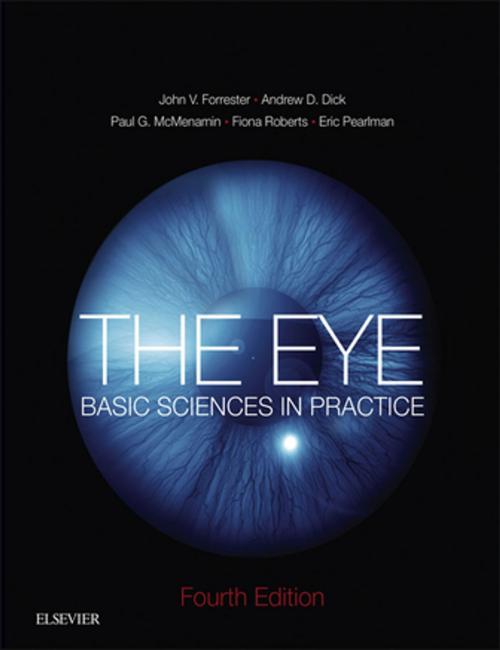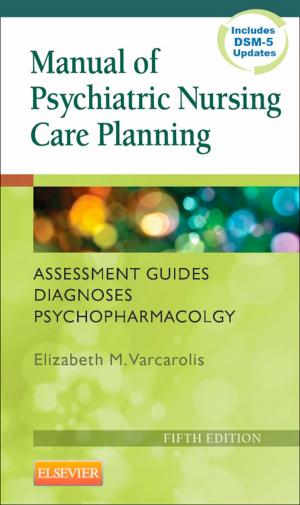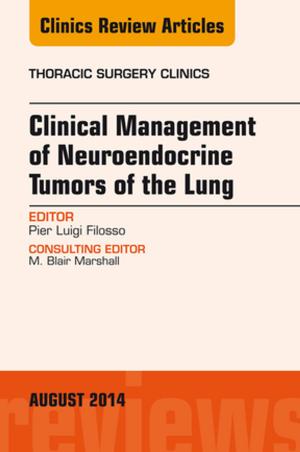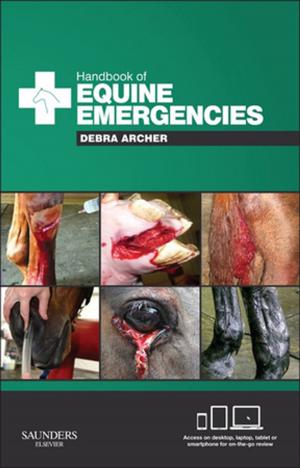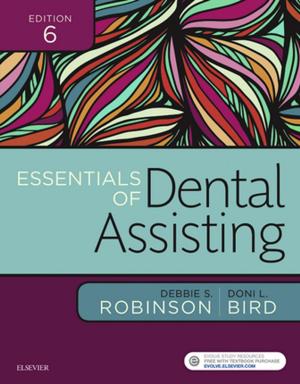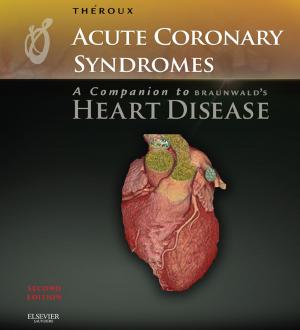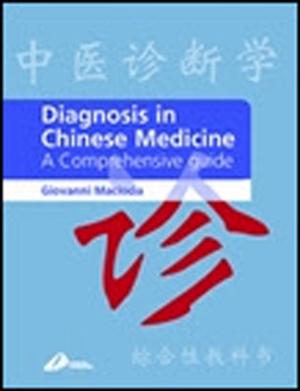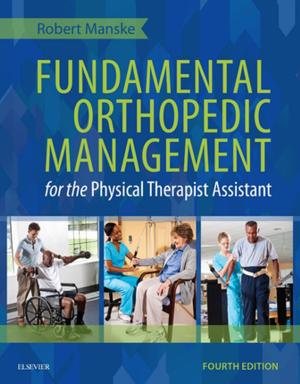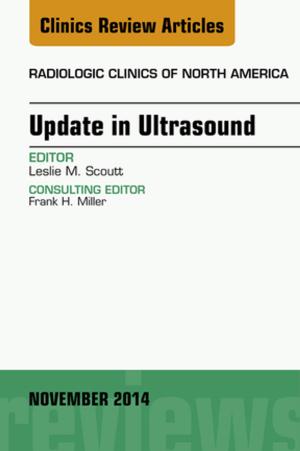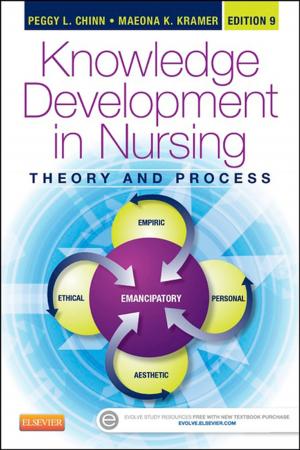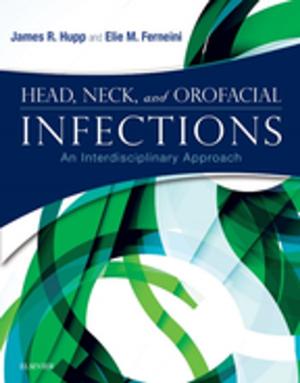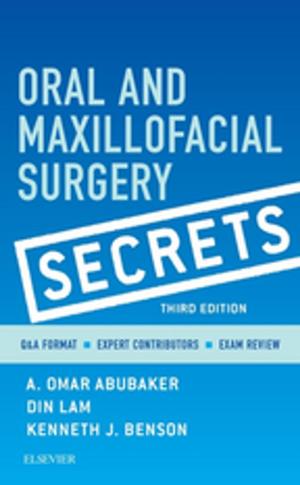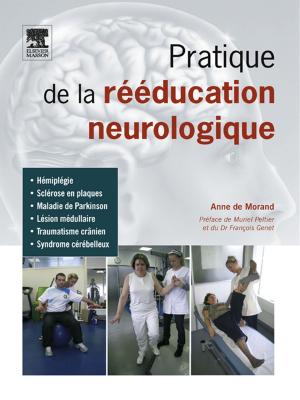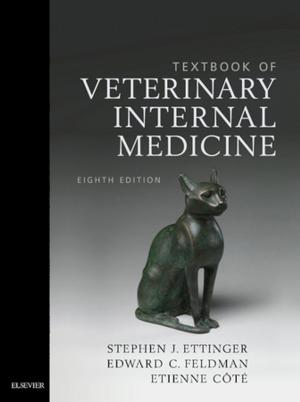The Eye E-Book
Basic Sciences in Practice
Nonfiction, Health & Well Being, Medical, Specialties, Optometry, Ophthalmology| Author: | Andrew D. Dick, BSc, MB, BS, MD, FRCP, FRCS, FRCOphth, FMedSci, FARVO, Paul G McMenamin, BSc, MSc(MedSci), DCS (Med), PhD, Fiona Roberts, BSc, MBChB, MD, FRCPath, Eric Pearlman, BSc, PhD, John V. Forrester, MBChB, MD, FRCS(Ed), FRCP(Glasg) (Hon), FRCOphth (Hon), FMedSci, FRSE, FARVO | ISBN: | 9780702055539 |
| Publisher: | Elsevier Health Sciences | Publication: | February 19, 2015 |
| Imprint: | Saunders Ltd. | Language: | English |
| Author: | Andrew D. Dick, BSc, MB, BS, MD, FRCP, FRCS, FRCOphth, FMedSci, FARVO, Paul G McMenamin, BSc, MSc(MedSci), DCS (Med), PhD, Fiona Roberts, BSc, MBChB, MD, FRCPath, Eric Pearlman, BSc, PhD, John V. Forrester, MBChB, MD, FRCS(Ed), FRCP(Glasg) (Hon), FRCOphth (Hon), FMedSci, FRSE, FARVO |
| ISBN: | 9780702055539 |
| Publisher: | Elsevier Health Sciences |
| Publication: | February 19, 2015 |
| Imprint: | Saunders Ltd. |
| Language: | English |
The Eye: Basic Sciences in Practice provides highly accessible, concise coverage of all the essential basic science required by today’s ophthalmologists and optometrists in training. It is also essential reading for those embarking on a career in visual and ophthalmic science, as well as an invaluable, current refresher for the range of practitioners working in this area.
This new fourth edition has now been fully revised and updated in line with current curricula, key research developments and clinical best practice. It succinctly incorporates the massive strides being made by genetics and functional genomics based on the Human Genome Project, the new understanding of how the microbiome affects all aspects of immunology, the remarkable progress in imaging technology now applied to anatomy and neurophysiology, as well as exciting new molecular and other diagnostic methodologies now being used in microbiology and pathology. All this and more collectively brings a wealth of new knowledge to students and practitioners in the fields of ophthalmology and visual science.
-
The only all-embracing textbook of basic science suitable for trainee ophthalmologists, optometrists and vison scientists – other books concentrate on the individual areas such as anatomy.
-
Attractive page design with clear, colour diagrams and text boxes make this a much more accessible book to learn from than many postgraduate textbooks.
-
Presents in a readable form an account of all the basic sciences necessary for an understanding of the eye – anatomy, embryology, genetics, biochemistry, physiology, pharmacology, immunology, microbiology and infection and pathology.
-
More on molecular pathology.
-
Thorough updating of the sections on pathology, immunology, pharmacology and immunology.
-
Revision of all other chapters.
-
More colour illustrations.
The Eye: Basic Sciences in Practice provides highly accessible, concise coverage of all the essential basic science required by today’s ophthalmologists and optometrists in training. It is also essential reading for those embarking on a career in visual and ophthalmic science, as well as an invaluable, current refresher for the range of practitioners working in this area.
This new fourth edition has now been fully revised and updated in line with current curricula, key research developments and clinical best practice. It succinctly incorporates the massive strides being made by genetics and functional genomics based on the Human Genome Project, the new understanding of how the microbiome affects all aspects of immunology, the remarkable progress in imaging technology now applied to anatomy and neurophysiology, as well as exciting new molecular and other diagnostic methodologies now being used in microbiology and pathology. All this and more collectively brings a wealth of new knowledge to students and practitioners in the fields of ophthalmology and visual science.
-
The only all-embracing textbook of basic science suitable for trainee ophthalmologists, optometrists and vison scientists – other books concentrate on the individual areas such as anatomy.
-
Attractive page design with clear, colour diagrams and text boxes make this a much more accessible book to learn from than many postgraduate textbooks.
-
Presents in a readable form an account of all the basic sciences necessary for an understanding of the eye – anatomy, embryology, genetics, biochemistry, physiology, pharmacology, immunology, microbiology and infection and pathology.
-
More on molecular pathology.
-
Thorough updating of the sections on pathology, immunology, pharmacology and immunology.
-
Revision of all other chapters.
-
More colour illustrations.
